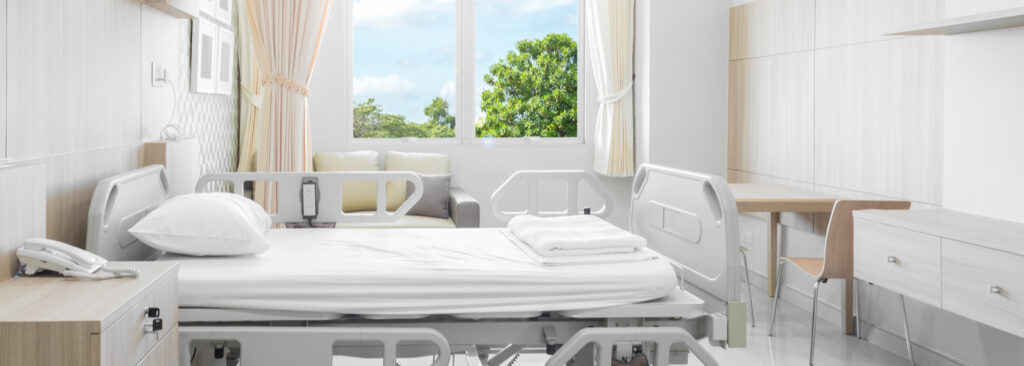
Confidentiality is a crucial component of the physician-patient relationship. From surgery centers to medical offices, designing spaces with privacy in mind is essential to creating an environment in which patients are comfortable sharing health concerns. Patient record handling, conducting physical examinations, and prescription preparation are examples of tasks requiring confidential care. Healthcare construction services make this possible through innovative design concepts that promote privacy in a variety of ways.
Why is Patient Privacy Important?
Patient privacy has always been a vital aspect of healthcare plans. Without a high level of confidentiality, the industry cannot operate successfully. The Health Insurance Portability and Accountability Act, also known as HIPAA, mandates making reasonable efforts to maintain patient privacy throughout all healthcare facilities.
HIPPA is a federal law designed to protect sensitive patient health information. The Privacy Rule of HIPAA sets the standard for patient rights when it comes to how health information is used. This rule also allows for the flow of health information to facilitate high-quality care across providers. The law aims to strike a balance between these important interests.
The adoption of HIPPA policies prompted increased attention to privacy among all players in the healthcare field. Quality healthcare construction allows for heightened sensitivity to patient privacy from the ground up. When spaces are constructed to promote discretion, it’s easier to maintain confidentiality, creating a more enjoyable patient experience.
Healthcare Construction That Promotes Privacy in Every Corner
While modern open floor plans are popular in the design world, healthcare construction demands a different approach. Certain strategies can be used to safeguard the privacy of each patient within a facility. Here are ideas for the various work areas we often see in hospitals and medical centers.
Registration Zones
When patients arrive for an appointment or procedure, efficient registration is critical. This is also a time when significant personal details are discussed. From contact information to medical history, the patient registration process requires privacy through thoughtful healthcare construction. Fortunately, there are many ways to increase privacy throughout the check-in experience, including:
- Individual enclosures promoting one-on-one information gathering
- Sound-proof partitions between registration desks
- Electronic check-in features to accommodate data collection in spaces separate from main waiting areas
These examples of innovation in healthcare construction eliminate situations in which patients are providing sensitive information in public areas.
Inpatient Rooms
Inpatient hospital rooms require thoughtful privacy features to address the unique needs of admitted patients. In addition to standard patient privacy, inpatient rooms must also provide restful spaces without the distraction of outside noise. Utilizing sound-proof walls and light fixtures, as well as the incorporation of built-in window blinds, can encourage rest. In addition, cubicle curtains and enclosures can allow for further discretion.
Exam Rooms
Medical exam rooms designed and built with privacy in mind become spaces in which the patient care team is able to converse both comfortably and in confidence. Soundproofing is paramount, and partnering with a healthcare construction company experienced in the latest techniques in this area is essential.
Nurse Stations
Nurses, doctors, and other medical staff frequently record patient information in a work area outside patient rooms. These nurse stations help foster a collaborative process between healthcare workers. Whether nurses are briefing incoming staff on shift or preparing medication, certain healthcare construction additions can be quite impactful.
These additions may include:
- Sound-absorbing partitions
- Privacy screens on computers or tablets
- Small cubicles adjacent to work areas and hallways
Pharmacies
Retail pharmacies are often located in common areas of hospitals and other medical facilities. Pharmacists may require dedicated areas to provide patients with private counseling during a prescription pick-up.
Maximizing semi-private counter space with partitions can help promote privacy during such conversations. Similarly, constructing a small room with a closing door can make for an ideal space for pharmacists to use in these instances.
Work with Perrier Esquerré Contractors
Perrier Esquerré Contractors is a trusted commercial general contractor in Louisiana. From small renovations to full-scale commercial design-builds, our projects range in complexity, and we always deliver impeccable work. We keep our clients happy by striving to run on deadline and within budget. Reach out to us to learn more about our innovative ideas and healthcare construction services. We would love to hear from you to discuss your project!